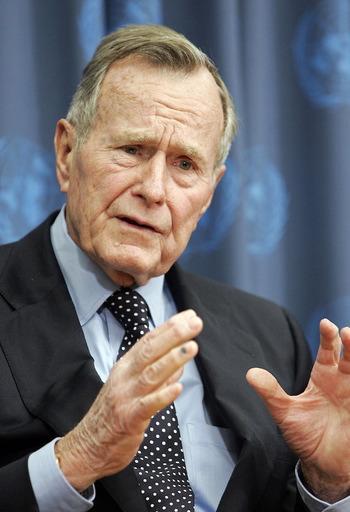June 16, 2012
The Pentagon’s global military design is one of world conquest.
The military deployment of US-NATO forces is occurring in several regions of the world simultaneously.
The concept of the “Long War” has characterized US military doctrine since the end of World War II. The broader objective of global military dominance in support of an imperial project was first formulated under the Truman administration in the late 1940s at the outset of the Cold War.
In September 1990, some five weeks after Saddam Hussein’s Iraq invaded Kuwait, US President and Commander in Chief George Herbert Walker Bush delivered a historical address to a joint session of the US Congress and the Senate in which he proclaimed a New World Order emerging from the rubble of the Berlin Wall and the demise of the Soviet Union.
Bush Senior had envisaged a world of "peaceful international co-operation", one which was no longer locked into the confrontation between competing super powers, under the shadow of the doctrine of "Mutually Assured Destruction" (MAD) which had characterized the Cold War era.

George H Walker Bush addressed a Joint Session
of the US Congress and the Senate, September 1990
Bush declared emphatically at the outset of what became known as "the post-Cold War era" that:
“a new partnership of nations has begun, and we stand today at a unique and extraordinary moment. The crisis in the Persian Gulf, as grave as it is, also offers a rare opportunity to move toward an historic period of cooperation. Out of these troubled times… a new world order can emerge: A new era freer from the threat of terror, stronger in the pursuit of justice and more secure in the quest for peace. An era in which the nations of the world, east and west, north and south, can prosper and live in harmony.”
Of course, speeches by American presidents are often occasions for cynical platitudes and contradictions that should not be taken at face value. After all, President Bush was holding forth on international law and justice only months after his country had invaded Panama in December 1989 causing the deaths of several thousand citizens – committing crimes comparable to what Saddam Hussein would be accused of and supposedly held to account for. Also in 1991, the US and its NATO allies went on to unleash, under a “humanitarian” mantle, a protracted war against Yugoslavia, leading to the destruction, fragmentation and impoverishment of an entire country.
Nevertheless, it is instructive to use Bush Senior’s slanted vision of a “New World Order” as a reference point for how dramatically the world has changed in the intervening 20 years of the so-called post-Cold War era, and in particular how unilaterally degenerate the contemporary international conduct of the US has become under the Clinton, G. W. Bush Junior and Obama administrations.
Bush Senior's "promise" of world peace has opened up, in the wake of the Cold War, an age of continuous warfare accompanied by a process of economic dislocation, social devastation and environmental degradation.
In a bitter irony, this concept of peaceful international co-operation and partnership was used as a pretext to unleash The Gulf War, which consisted in "defending the sovereignty" of Kuwait and “upholding international law” following the Iraqi 1990 invasion.
Global Warfare
We are dealing with a global military agenda, namely “Global Warfare”. Far from a world of peaceful cooperation, we are living in a dystopian world of permanent wars – wars that are being waged in flagrant contravention of international law and against public opinion and interest.
We are dealing with a global military agenda, namely “Global Warfare”. Far from a world of peaceful cooperation, we are living in a dystopian world of permanent wars – wars that are being waged in flagrant contravention of international law and against public opinion and interest.
Far from a “new era more secure in the quest for peace” we may see a world more akin to George Orwell’s 1984, dominated by perpetual conflict, insecurity, authoritarian surveillance, doublethink and public mind control.

A problem for many citizens is that “doublethink and mind control” have become so deeply embedded and disseminated by the mass media, including the so-called quality free press, such as The New York Times and The Guardian.

No comments:
Post a Comment